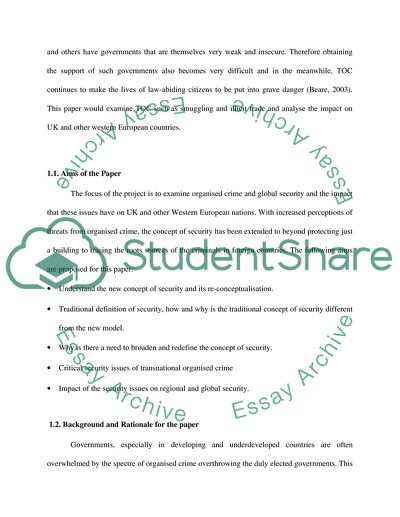Cite this document
(Transnational Organized Crime And International Security Case Study, n.d.)
Transnational Organized Crime And International Security Case Study. Retrieved from https://studentshare.org/sociology/1730964-global-securitytransnational-organised-crime-smuggling-and-illicit-trade-the-impact-on-uk-and-other-western-european-countries
Transnational Organized Crime And International Security Case Study. Retrieved from https://studentshare.org/sociology/1730964-global-securitytransnational-organised-crime-smuggling-and-illicit-trade-the-impact-on-uk-and-other-western-european-countries
(Transnational Organized Crime And International Security Case Study)
Transnational Organized Crime And International Security Case Study. https://studentshare.org/sociology/1730964-global-securitytransnational-organised-crime-smuggling-and-illicit-trade-the-impact-on-uk-and-other-western-european-countries.
Transnational Organized Crime And International Security Case Study. https://studentshare.org/sociology/1730964-global-securitytransnational-organised-crime-smuggling-and-illicit-trade-the-impact-on-uk-and-other-western-european-countries.
“Transnational Organized Crime And International Security Case Study”, n.d. https://studentshare.org/sociology/1730964-global-securitytransnational-organised-crime-smuggling-and-illicit-trade-the-impact-on-uk-and-other-western-european-countries.


